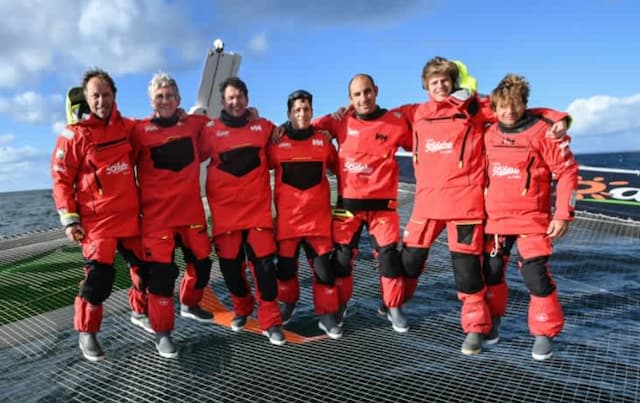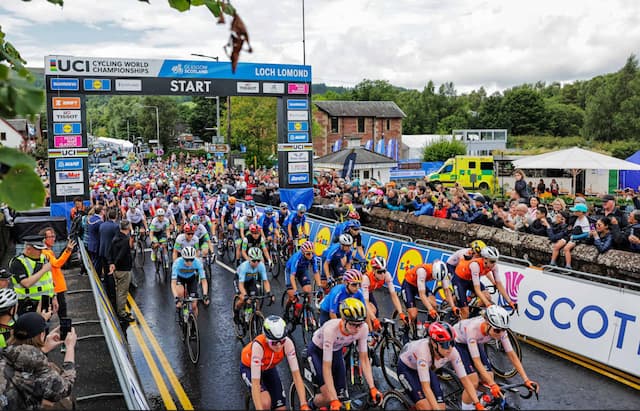Kenyan Brigid Kosgei Explodes Female World Marathon Record

On Saturday 12th October 2019, her compatriot Eliud Kipchoge became the first man to run the 42.195 km in less than two hours.
Weekend of madness for the marathon: Kenyan Brigid Kosgei exploded the old world record of Paula Radcliffe in Chicago (USA) Sunday 13th October, 2019, the day after the feat of his compatriot Eliud Kipchoge , first man to run 42.195 km under unlicensed conditions in less than two hours.
Two records in diametrically opposed conditions.
Only two “hares”
Kosgei, 25, only had the help of two “hares” on most of the race to make it 2h 14m 04 sec and take 1m 21 seconds off the British record, which dated April 13, 2003, and which no one has approached for more than 16 years.
WORLD RECORD: Brigid Kosgei sets the new world record in the marathon at the 2019 @BankofAmerica #ChicagoMarathon! pic.twitter.com/lakum2XoET
— Chicago Marathon (@ChiMarathon) October 13, 2019
Conversely, on Saturday in Austria, Kipchoge, Olympic champion and world record holder (2h139 in Berlin in 2018), benefited from an army of 41 “hares” who took turns throughout the course to ensure a pace homogeneous and protect it from the wind until the end of its time trial loop in 1h59 min 40 sec.
This unofficial race was sponsored and tailored by the British petrochemical company Ineos to allow the feat, with a schedule chosen according to favourable weather conditions, and a route without imperfection tested repeatedly.

One minute ahead halfway
Kosgei, she was a favourite, one month after running in early September the fastest half marathon in history (1:04 min 28 sec, a record however not approved), with a title to defend “Windy city ”(the windy city) on one of the most prestigious marathons on the planet.
She set the tone right from the start, outdistancing her rivals from the first few kilometres, who never saw her again.
At halfway she was already more than a minute ahead of Paula Radcliffe’s record. She then remained largely in the nails of the world record until the finish line.
But this performance was not expected, as Radcliffe’s 2:15:25 seemed out of reach. In 16 years, the foundress to get closer was the Kenyan Mary Jepkosgei Keitany, in 2 h 17 min 01, in 2017.
Kosgei thus explodes its previous mark of more than 4 minutes, ahead of Ethiopia’s Ababel Yeshaneh (2h2051) and Gelete Burka (2h2055).
On the men’s side, Kenyan veteran Lawrence Cherono, winner of this year’s Boston, won in 2 h 05 min 45 sec, in a race he finished in the sprint ahead of Ethiopians Dejene Debela (2h546) and Asefa Mengstu (2h548).
Mo Farah only 8th
Britain’s Mo Farah, who won in Chicago last year setting a new European record, finished eighth, in 2 h 09 min 58 sec. Expected rival Galen Rupp, a former training partner at the Nike Oregon Project – which Farah was part of until 2017 – has dropped out, as has Jordan Hasay, also a member of the NOP.
This elite training centre in the northwestern United States, closed on Friday by Nike, which financed it, is in turmoil since the suspension last week for four years of his master, Alberto Salazar, for “organizing and incitement to banned doping conduct “after six years of investigation by the US Anti-Doping Agency (Usada).
Kenya is also not spared by the suspicions of doping. The country came close to excluding the Rio Games in 2016 for this reason. It has since taken action, but was still pinned by a report of the ZDF late September.
The German channel claimed, with images, that at least two athletes at the Doha Worlds were doped with EPO, and that the federation (AK) covered doping cases.

Enjoyed this? Get the week’s top France stories
One email every Sunday. Unsubscribe anytime.


